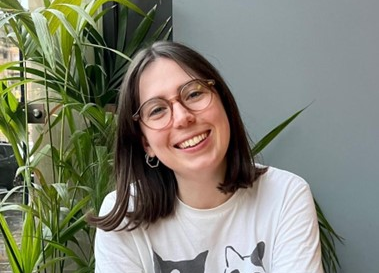
Rachel Miller: On Active Bystanding
‘There are two kinds of evil people in this world. Those who do evil stuff, and those who see evil stuff being done and don’t try to stop it.’
This is what social outcast Janis Ian (played by Lizzy Caplan) tells previously home-schooled Cady Heron (played by Lindsay Lohan) at North Shore High, to convince her to participate in a revenge plot against queen bee Regina George (played by Rachel McAdams) in the 2004 teen comedy Mean Girls. I won’t go through the intricacies of what Regina did to Janis and what Janis wants Cady to do to Regina; instead, I’ll encourage you to (re-)watch the film! For the purposes of this blog, it suffices to say that Janis thinks that Regina ‘ruined her life’, and so Janis wants to use Cady to ruin Regina’s life in return.
Going back to the opening quote with this understanding in mind, it becomes clear that Janis thinks Regina is the first kind of evil person, and Cady would be the second kind if she does not agree to take part in the revenge plot proposed by Janis. While there is a degree of irony in the fact that taking part in the hatched plan would turn Cady into the first kind of evil person, the impression is given that Janis would prefer this to Cady being the second kind. To Janis, knowing bad things are happening and not doing anything to stop them is worse than doing bad things yourself.

At this point, I feel the need to make clear that I am not promoting the practice of evil in this blog! I do agree, however, that letting something bad happen is, itself, a form of harm. So, what I am promoting through this blog is the practice of active bystanding.
Defined as challenging inappropriate behaviour by taking proportionate action to prevent it from escalating, the goal of active bystanding is to foster a safe and inclusive environment in which everyone can feel a sense of belonging. The unacceptable behaviour could take many forms: microaggressions; discrimination; harassment; bullying; and hate. That said, there are just as many ways to counter this problematic behaviour. An active bystander can disrupt these actions by starting a conversation with the person/people facing the inappropriate behaviour, take direct action by checking in on the person/people receiving the unacceptable behaviour and challenging the person/people giving it, or delegate the situation to someone else if they do not feel safe enough to intervene themselves.
Underpinning this problematic behaviour are negative beliefs about, and attitudes towards, others, often to do with gender, race, sexuality, religion, and (dis)ability. Even if, or rather, all the more so because you yourself are not impacted by the inappropriate behaviour, you have a responsibility to use your privilege and be an ally towards those who are.
At The University of Manchester, you can contact Campus Support and Security Services on 0161 3060 9966. You can also download the SafeZone App to gain assistance from the same services and/or use Report and Support to anonymously report an incident or speak to a trained Support Advisor.
The University of Manchester also runs Active Bystander training. To find out more and attend a session please contact equalityanddiversity@manchester.ac.uk. The more empowered we feel to challenge unacceptable behaviour, the more we can ensure that our campus is a safe and inclusive environment where everyone feels like they belong.






0 Comments